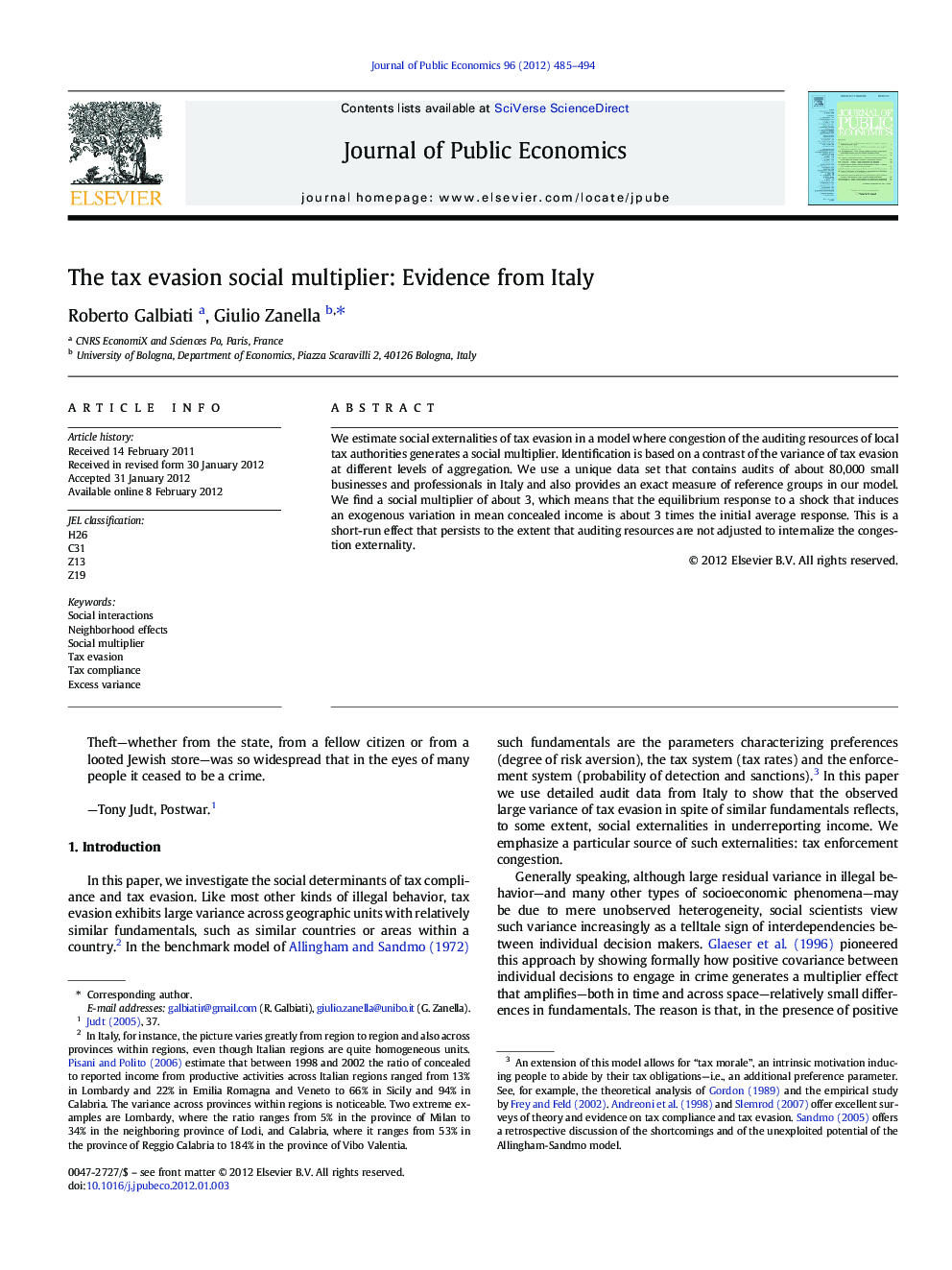| Article ID | Journal | Published Year | Pages | File Type |
|---|---|---|---|---|
| 969754 | Journal of Public Economics | 2012 | 10 Pages |
We estimate social externalities of tax evasion in a model where congestion of the auditing resources of local tax authorities generates a social multiplier. Identification is based on a contrast of the variance of tax evasion at different levels of aggregation. We use a unique data set that contains audits of about 80,000 small businesses and professionals in Italy and also provides an exact measure of reference groups in our model. We find a social multiplier of about 3, which means that the equilibrium response to a shock that induces an exogenous variation in mean concealed income is about 3 times the initial average response. This is a short-run effect that persists to the extent that auditing resources are not adjusted to internalize the congestion externality.
► We study social externalities in tax evasion, generated by short-run auditing congestion. ► We map a benchmark model of taxpayer behavior into a workhorse statistical model of social interactions. ► We focus on Italy as a case study, employing a unique administrative dataset of tax audits. ► We employ a relatively new estimation technique developed by Graham (2008). ► We find a social multiplier of about 3.
